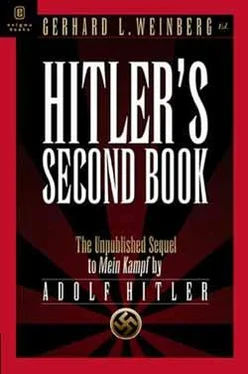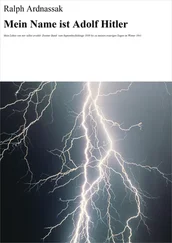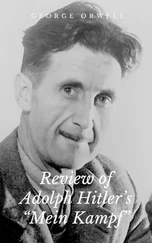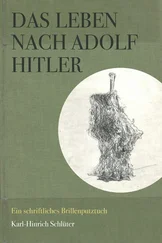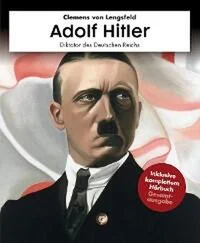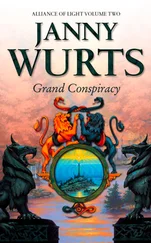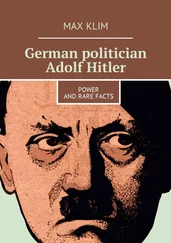By increasing the productivity of the soil, however, some alleviation of a Folk’s lot could be achieved. But in the long run this would never exempt it from the duty to adapt the nation’s living space, become insufficient, to the increased population. Through internal colonisation, in the most favourable circumstances, only amelioration in the sense of social reform and justice could take place. It is entirely without importance as regards the total sustenance of a Folk. It will often be harmful for a nation’s foreign policy position because it awakens hopes which can remove a Folk from realistic thinking. The ordinary, respectable citizen will then really believe that he can find his daily bread at home through industry and hard work, rather than realise that the strength of a Folk must be concentrated in order to win new living space.
Economics, which especially today is regarded by many as the saviour from distress and care, hunger and misery, under certain preconditions can give a Folk possibilities for existence which lie outside its relation to its own soil. But this is linked to a number of prerequisites of which I must make brief mention here.
The sense of such an economic system lies in the fact that a nation produces more of certain vital commodities than it requires for its own use. It sells this surplus outside its own national community, and with the proceeds therefrom it procures those foodstuffs and also the raw materials which it lacks. Thus this kind of economics involves not only a question of production, but in at least as great a degree a question of selling. There is much talk, especially at the present time, about increasing production, but it is completely forgotten that such an increase is of value only as long as a buyer is at hand. Within the circle of a nation’s economic life, every increase in production will be profitable to the degree that it increases the number of goods which are thus made available to the individual. Theoretically, every increase in the industrial production of a nation must lead to a reduction in the price of commodities and in turn to an increased consumption of them, and consequently put the individual Folk Comrade in a position to own more vital commodities. In practice, however, this in no way changes the fact of the inadequate sustenance of a nation as a result of insufficient soil. For, to be sure, we can increase certain industrial outputs, indeed many times over, but not the production of foodstuffs. Once a nation suffers from this need, an adjustment can take place only if a part of its industrial overproduction can be exported in order to compensate from the outside for the foodstuffs that are not available in the homeland. But an increase in production having this aim achieves the desired success only when it finds a buyer, and indeed a buyer outside the country. Thus we stand before the question of the sales potential, that is, the market, a question of towering importance.
The present world commodity market is not unlimited. The number of industrially active nations has steadily increased. Almost all European nations suffer from an inadequate and unsatisfactory relation between soil and population. Hence they are dependent on world export. In recent years the American Union has turned to export, as has also Japan in the east. Thus a struggle automatically begins for the limited markets, which becomes tougher the more numerous the industrial nations become and, conversely, the more the markets shrink. For while on the one hand the number of nations struggling for world markets increases, the commodity market itself slowly diminishes, partly in consequence of a process of self industrialisation on their own power, partly through a system of branch enterprises which are more and more coming into being in such countries out of sheer capitalist interest. For we should bear the following in mind: the German Folk, for example, has a lively interest in building ships for China in German dockyards, because thereby a certain number of men of our nationality get a chance to feed themselves which they would not have on our own soil, which is no longer sufficient. But the German Folk has no interest, say, in a German financial group or even a German factory opening a so called branch dockyard in Shanghai which builds ships for China with Chinese workers and foreign steel, even if the corporation earns a definite profit in the form of interest or dividend. On the contrary, the result of this will be only that a German financial group earns so and so many million, but, as a result of the orders lost, a multiple of this amount is withdrawn from the German national economy.
The more pure capitalist interests begin to determine the present economy, the more the general viewpoints of the financial world and the stock exchange achieve a decisive influence here, the more will this system of branch establishments reach out and thus artificially carry out the industrialisation of former commodity markets and especially curtail the export possibilities of the European mother countries. Today many can still afford to smile over this future development, but as it makes further strides, within thirty years people in Europe will groan under its consequences
The more market difficulties increase, the more bitterly will the struggle for the remaining ones be waged.
Although the primary weapons of this struggle lie in pricing and in the quality of the goods with which nations competitively try to undersell each other, in the end the ultimate weapons even here lie in the sword. The so called peaceful economic conquest of the world could take place only if the Earth consisted of purely agrarian nations and but one industrially active and commercial nation. Since all great nations today are industrial nations, the so called peaceful economic conquest of the world is nothing but the struggle with means which will remain peaceful for as long as the stronger nations believe they can triumph with them, that is, in reality for as long as they are able to kill the others with peaceful economics. For this is the real result of the victory of a nation with peaceful economic means over another nation. Thereby one nation receives possibilities of survival and the other nation is deprived of them. Even here what is at stake is always the substance of flesh and blood, which we designate as a Folk
If a really vigorous Folk believes that it cannot conquer another with peaceful economic means, or if an economically weak Folk does not wish to let itself be killed by an economically stronger one, as the possibilities for its sustenance are slowly cut off, then in both cases [it will seize the sword] the vapours of economic phraseology will be suddenly torn asunder, and war, that is the continuation of politics with other means, steps into its place.
The danger to a Folk of economic activity in an exclusive sense lies in the fact that it succumbs only too easily to the belief that it can ultimately shape its destiny through economics. Thus the latter from a purely secondary place moves forward to first place, and finally is even regarded as Stateforming, and robs the Folk of those very virtues and characteristics which in the last analysis make it possible for Nations and States to preserve life on this Earth.
A special danger of the so called peaceful economic policy, however, lies above all in the fact that it makes possible an increase in the population, which finally no longer stands in any relation to the productive capacity of its own soil to support life. This overfilling of an inadequate living space with people not seldom also leads to the concentration of people in work centres which look less like cultural centres, and rather more like abscesses in the national body in which all evil, vices and diseases seem to unite. Above all, they are breeding grounds of blood mixing and bastardisation, and of race lowering, thus resulting in those purulent infection centres in which the international Jewish racial maggots thrive and finally effect further destruction.
Читать дальше
